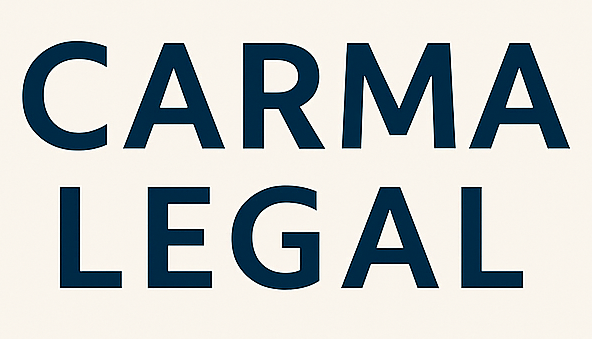Define traumatic brain injury
A traumatic brain injury attorney helps you pursue fair compensation after a serious head trauma. If you or a loved one has suffered a blow or jolt to the head due to another party’s negligence, understanding the nature of a brain injury is the first step toward protecting your rights and securing the care you need.
What is a traumatic brain injury
A traumatic brain injury (TBI) occurs when an external force disrupts normal brain function. This disruption can range from a mild concussion to a severe injury involving bruising, torn tissue, bleeding, or other physical brain damage. More severe cases may require months of rehabilitation or result in permanent disability [1].
Severity levels and symptoms
TBIs are typically classified as mild, moderate, or severe based on factors such as loss of consciousness and neurological imaging.
- Mild TBI (concussion): confusion, headaches, dizziness, memory issues
- Moderate TBI: extended loss of consciousness, nausea, seizures
- Severe TBI: prolonged coma, significant cognitive impairment, physical disabilities
Between 15% and 30% of mild TBI patients experience long-term cognitive or mood impairments that last beyond one year [2].
Common causes of TBI
Understanding common causes helps in gathering evidence for your claim:
- Falls, including slip-and-fall accidents, are the leading cause for children and older adults [3].
- Vehicle collisions involving cars, bicycles, and motorcycles.
- Explosive blasts and combat injuries.
- Sports-related impacts.
Identifying the cause is crucial for establishing liability and proving negligence.
Identify your legal needs
Securing expert legal advocacy is vital when seeking maximum compensation. An experienced lawyer specializing in TBIs will guide you through complex procedures and negotiate with insurance companies on your behalf.
Role of a traumatic brain injury attorney
Your attorney will:
- Evaluate the facts of your accident and determine liability.
- Calculate the full scope of your damages, including medical and non-medical losses.
- Gather and present evidence to support your claim.
- Handle negotiations and, if necessary, represent you at trial.
If you face multiple injuries, you may also need a spinal cord injury lawyer or a paralysis injury attorney to address co-occurring damages.
When to seek representation
You should consult an attorney as soon as possible:
- After receiving an initial medical evaluation.
- Before speaking with insurance adjusters.
- To preserve evidence and meet strict deadlines.
Early representation ensures your rights are protected from the start and prevents evidence from disappearing.
Benefits of experienced advocacy
An attorney with trial experience can:
- Accurately value complex losses.
- Leverage expert witnesses, such as neurologists and life care planners.
- Negotiate effectively to avoid low settlement offers.
- Provide courtroom readiness if negotiations fail.
A proven record in catastrophic injury cases often translates into higher settlements and verdicts.
Calculate compensation types
Determining the full range of damages is essential for maximizing your recovery. Compensation falls into three main categories.
Economic damages
These cover direct financial losses:
- Medical expenses (hospital bills, surgeries, rehabilitation)
- Lost wages and reduced earning capacity
- Costs for assistive devices or home modifications
Non economic damages
These address intangible losses:
- Pain and suffering
- Mental anguish
- Loss of enjoyment of life
Future care and life care planning
Long-term needs can include:
- Ongoing physical and cognitive therapy
- Residential care or assisted living
- Support services and vocational training
| Damage type | Description | Examples |
|---|---|---|
| Economic damages | Compensation for quantifiable financial losses | Medical bills, lost income |
| Non economic damages | Coverage for intangible personal and emotional harm | Pain, emotional distress |
| Future care planning | Funds allocated to anticipated long-term needs | Life care plans, assistive technology |
Accurate calculation often requires collaboration with medical experts and financial planners to project lifetime costs.
Collect supporting evidence
Strong evidence is the cornerstone of a successful claim. Your legal team will help you assemble documentation that proves liability and quantifies your losses.
Medical and expert reports
- Hospital and doctor records detailing diagnosis and treatment.
- Expert affidavits from neurologists, neuropsychologists, and rehabilitation specialists.
- Life care plans projecting future medical needs and costs.
Witness and accident records
- Statements from eyewitnesses or first responders.
- Police or incident reports.
- Photographs or video footage of the accident scene.
Financial and employment documents
- Pay stubs and tax returns to verify lost income.
- Receipts for out-of-pocket expenses, such as transportation to appointments.
- Invoices for home modifications, medical equipment, or personal care services.
Gathering this evidence promptly helps maintain accuracy and preserves credibility with insurance companies and courts.
Navigate claim process
Understanding each phase of the legal process empowers you to stay informed and engaged. While your attorney handles the legal work, knowing what to expect helps you prepare.
Initial case consultation
- Review of accident details and medical records.
- Discussion of your goals and potential claim value.
- Agreement on fee structure, typically contingency-based, meaning you pay only if you recover compensation.
Demand letter and negotiation
Your attorney drafts a demand letter outlining:
- The facts of the incident.
- The extent of your injuries and losses.
- A demand for a specific settlement amount.
Negotiations with the insurer may involve multiple offers and counteroffers. An attorney’s expertise can help you reject lowball offers.
Litigation and trial preparation
If negotiations stall, your case proceeds to court:
- Discovery phase, including depositions and document exchange.
- Motions and pretrial hearings.
- Trial, where your attorney presents evidence and expert testimony to a judge or jury.
Successfully navigating this stage requires trial readiness and familiarity with courtroom procedures.
Meet filing deadlines
Missing critical deadlines can bar you from recovery altogether. It is your responsibility to ensure all filings occur on time.
Statute of limitations
Each state sets a deadline—often two to three years from the injury date—to file a personal injury lawsuit. Consult your attorney promptly to determine your deadline.
Timely document submission
- File your complaint with the court before the statute expires.
- Serve the defendant properly according to state rules.
- Respond to motions and discovery requests within court-specified timeframes.
Extensions and tolling rules
Certain circumstances, such as minors or incapacitated plaintiffs, may extend or toll the deadline. Your attorney will advise on applicable exceptions to protect your claim.
Choose the right attorney
Selecting an attorney with the right qualifications and experience directly impacts your results. Look for a lawyer who specializes in catastrophic injuries and offers personalized attention.
Essential attorney qualities
- Trial experience in traumatic brain injury cases.
- Communication skills for clear updates and explanations.
- Compassion and empathy for your physical and emotional journey.
- Proven track record of high-value recoveries (for example, over $60 million in a TBI verdict [4]).
Interview questions for attorneys
- How many TBI cases have you handled and what were the outcomes?
- Who are your expert witnesses and how do they support my claim?
- What is your approach to negotiating with insurance companies?
- How will you keep me informed throughout the process?
Comparing law firm profiles
| Feature | What to look for |
|---|---|
| Case specialization | Focus on traumatic brain injury and catastrophic cases |
| Resources | Access to medical experts, investigators, life care planners |
| Fee structure | Contingency fees with no upfront costs |
| Client testimonials | Positive reviews, successful verdicts and settlements |
If you are also dealing with other injury types, consider a serious injury lawyer or a life changing injury attorney who can coordinate multiple claims.
Plan long term recovery
Compensation should address not only past expenses but also future care. Planning for long-term needs gives you peace of mind and financial stability.
Rehabilitation and therapies
- Physical, occupational, and speech therapy programs.
- Cognitive rehabilitation to address memory and attention deficits.
- Holistic services such as counseling and support groups.
Survivor benefits claims
You may qualify for:
- Social Security Disability Insurance (SSDI).
- Supplemental Security Income (SSI).
- Veterans benefits for service-related TBIs.
A specialized attorney or a survivor benefits claim lawyer can help you navigate these programs and avoid benefit offsets.
Life care planning strategies
A life care plan estimates:
- Ongoing medical treatments and therapies.
- Personal care assistance and vocational training.
- Home modifications and transportation costs.
Including a life care plan in your claim strengthens your argument for substantial future-care damages.
By following these steps—defining your injury, identifying your legal needs, calculating all damages, gathering strong evidence, navigating the claim process, meeting deadlines, choosing the right attorney, and planning for long-term recovery—you set the foundation for maximizing your compensation. Contact a skilled traumatic brain injury attorney today to protect your rights and secure the care you deserve.








